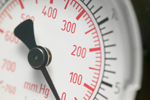 If you are over the age of 35, if you or your family have a history of high blood pressure, or have a history of heart or kidney problems, you should monitor your blood pressure.
If you are over the age of 35, if you or your family have a history of high blood pressure, or have a history of heart or kidney problems, you should monitor your blood pressure.
Anyone can develop high blood pressure. There are many things that can raise your blood pressure. Just being over the age of 55 increases your risk for this condition. Men are more likely to develop high blood pressure, as are African Americans. Smoking increases your risk, as does an inactive lifestyle with little or no exercise. Being overweight can lead to blood pressure readings that are higher than normal.
Getting your blood pressure checked regularly is something you can and should do for yourself. You can book an appointment with your doctor. He or she will check to make sure your blood pressure reading falls somewhere between the normal range — usually at or below 120/80 (systolic/diastolic).
It’s a simple step you can take to make sure nothing is amiss with your heart and circulatory system. In fact, scientists have been hard at work making blood pressure monitoring accessible and hassle-free. Just pop into your local pharmacy where you will most likely find a self-serve station where you can roll up your sleeve and take a quick reading.
And now hospitals are equipped with “finger-tip” monitors and have dispensed with the old blow-up arm bands that cause that uncomfortable squeezing sensation.
The latest development in blood pressure measuring comes in the form of a solar-powered device. It’s been tested in medical centers in Africa, where electricity is often a luxury.
The field tests showed that the $32.00 device is 94% in agreement with the standard blood-pressure testing method for systolic blood pressure — not bad for something that relies on shifting rays of sunlight for battery power.
The device was less accurate for diastolic blood pressure (the lower number that shows pressure when the heart is relaxed), but the researchers who conducted the performance trial think the problem should be easy to fix. Systolic blood pressure is the major contributor to cardiovascular problems and tends to be the more important reading.
It’s not hard to imagine that one day we might all have a solar-powered blood pressure monitor in our wallets and purses, wherever we go. Getting people to monitor and take an interest in their own health may well be dependent on ease of use and affordability.
